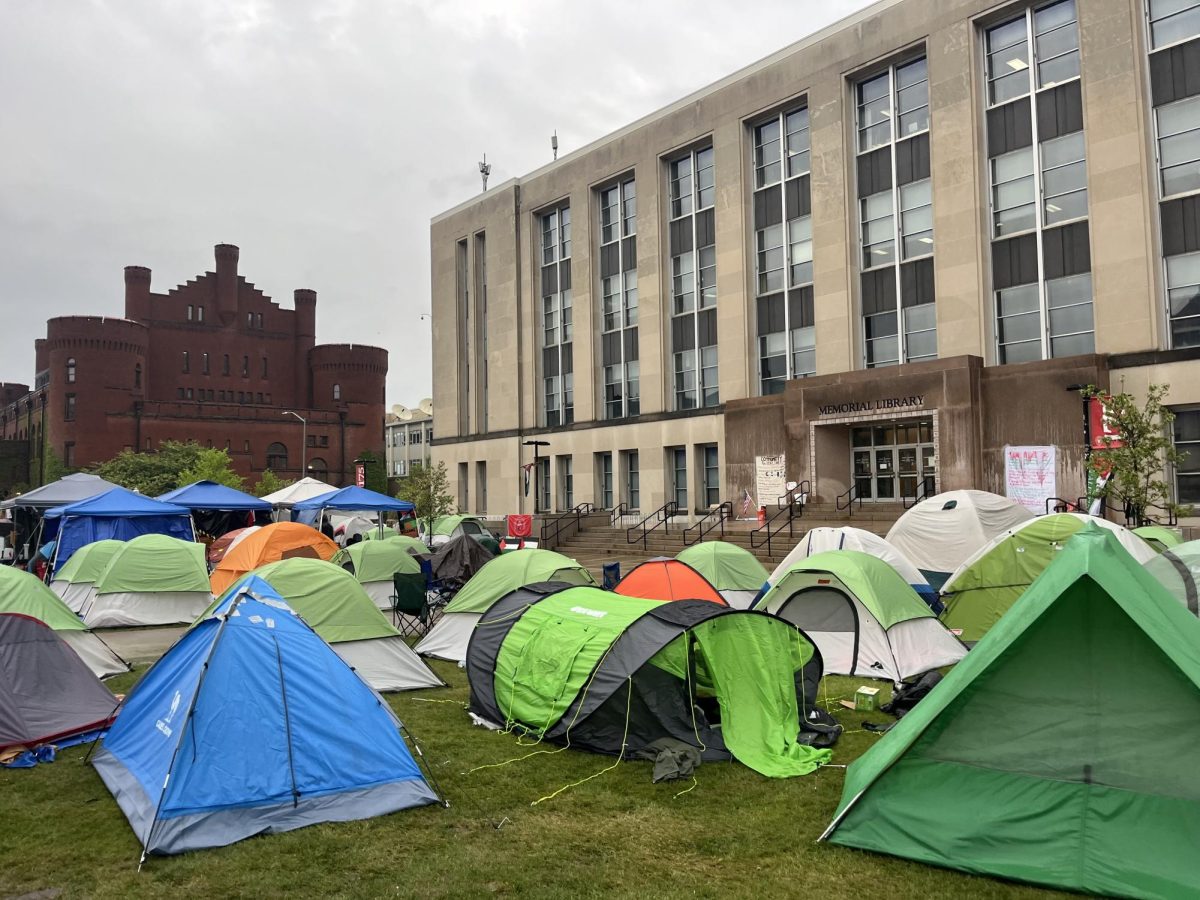While studying a 13th century Zen master’s essays, the Japanese word uji, which can be translated as time being, being time or for the time being, stuck out to Ruth Ozeki, the author of this year’s Go Big Read book.
Ozeki, who wrote the selected “A Tale for the Time Being” said it is difficult to talk about the inspiration of a book because it comes from so many different places. But, Ozeki said uji was a phrase that resonated with her because it is an unstable phrase and can shift in meaning.
Ozeki said the first line of the book, “Hello, my name is Nao, and I am a time being,” just came to her.
The phrase “time being” has two elements: time and being, which is about existence, life and identity, Ozeki said.
“The most wonderful part of the reading experience is that stories transcend time … it’s like time travel,” Ozeki said.
“A Tale for the Time Being” deals with heavy issues such as bullying, unemployment, feeling like an outcast and suicide, but Ozeki said she did not write the book thinking about what the reader would take away.
Instead, Ozeki said she write books as a way of thinking about subjects she is interested in.
“I hope the reader brings his or her life experience to the book and reads it and then creates his or her own version of the book … a novel is a collaboration between a reader and a writer,” Ozeki said. “I’ve done my work. Now it’s the readers’ turn to bring their experience.”
This year’s Go Big Read theme, global connections, was also reflected throughout “A Tale for the Time Being.”
The two protagonists’ lives are connected by a diary but also physically by ocean currents, and that is reflective of the way that people are living on an ecologically-interconnected planet, Ozeki said.
This connection is one of the reasons English professor Lynn Keller is using the book in one of her classes.
Keller said the book is concerned with how people live in time and how people locate themselves in the present moment. The book provides her class with an opportunity to think about the range of environmental concerns society is currently facing, she said.
There are a number of environmental issues that float through the book like the ocean currents in the Pacific and the Fukushima nuclear accident, Keller said. It is a good way to introduce students to current issues and make them think about how the issues apply to their lives as they do in the character’s lives, she said.
“Environmental issues really help us see how we are in a part of global community,” Keller said.
The book also deals with historical interconnectedness and family connections, Ozeki said.
“A Tale for the Time Being” ends abruptly, leaving readers with few answers, but Ozeki said that was her intention.
In a situation like the Japanese earthquake and tsunami or the Fukushima disaster, so many people disappear and there is no way to know what happened to them, Ozeki said.
“The idea of people’s lives just dropping out of time—that is the reality of these situations,” Ozeki said. “I felt I needed to honor that. Sometimes we can’t know what happened and that’s important.”
Ozeki said if people know something, this can offer a kind of closure and ability to put it to rest. Not knowing, Ozeki said, keeps all of the possibilities alive.
















